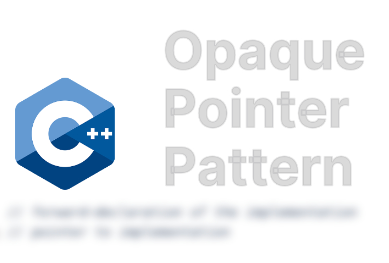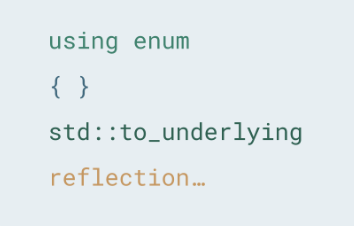Opaque Pointer Pattern in C++ -- Daniel Sieger
 After reading this article, you should understand the basics of the opaque pointer pattern and how you can implement it using
After reading this article, you should understand the basics of the opaque pointer pattern and how you can implement it using std::unique_ptr. I also gave some hints on when it is appropriate to use it and when maybe not.
Opaque Pointer Pattern in C++
by Daniel Sieger
From the article:
The basic problem is that C++ class declarations expose private details of the class. Private member functions and data members need to be declared in the header. Here’s an example for illustration:
// Point.h
class Point
{
public:
Point(float x, float y);
float x();
float y();
private:
float x_;
float y_;
};
While users of this class don’t have direct access to the private data members x_ and y_, there is still a dependency: If you change the private implementation details of Point, all other compilation units that include Point.h know about the change and need to be re-compiled.
This only gets worse for more complex dependency chains, e.g., when there are dependencies to other classes internal to the module that need to be included. To a certain degree, this can be dealt with by using forward declarations. However, at the end of the day there is an information leak: Private implementation details are leaking to clients. This goes directly against the idea of information hiding.
The opaque pointer pattern helps to deal with this problem.

 The evolution of the C++ language continues to bring powerful features that enhance code safety, readability, and maintainability. Among these improvements, we got changes and additions to enum class functionalities across C++17, C++20, and C++23. In this blog post, we’ll explore these advancements, focusing on initialization improvements in C++17, the introduction of the using enum keyword in C++20, and the std::to_underlying utility in C++23.
The evolution of the C++ language continues to bring powerful features that enhance code safety, readability, and maintainability. Among these improvements, we got changes and additions to enum class functionalities across C++17, C++20, and C++23. In this blog post, we’ll explore these advancements, focusing on initialization improvements in C++17, the introduction of the using enum keyword in C++20, and the std::to_underlying utility in C++23.